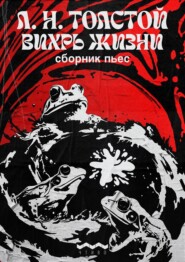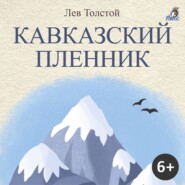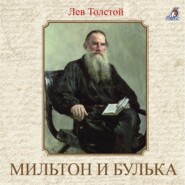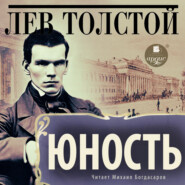По всем вопросам обращайтесь на: info@litportal.ru
(©) 2003-2025.
✖
The Kingdom of God is Within You; What is Art?
Настройки чтения
Размер шрифта
Высота строк
Поля
The way another class has of regarding it is more tragic. They declare that although it is the fate of humanity to be forever striving after love and peace, it is nevertheless abnormal and inconsistent. Those who affirm this are mostly the sensitive men of genius, who see and realize all the horror, folly, and cruelty of war, but by some strange turn of mind never look about them for any means of escape, but who seem to take a morbid delight in realizing to the utmost the desperate condition of mankind. The view of the famous French writer, Maupassant, on the subject of war, affords a noteworthy example of this kind. Gazing from his yacht upon a drill and target-practice of French soldiers, the following thoughts arise in his mind: —
"I have but to think of the word 'war' and a paralyzing sense of horror creeps over me, as though I were listening to stories of witchcraft, or tales of the Inquisition, or of things abominable, monstrous, unnatural, of ages past.
"When people talk of cannibals we smile contemptuously with a sense of superiority to such savages. But who are the savages, the true savages? Those who fight that they may drive off the conquered, or those who fight for the pure pleasure of killing? Those sharp-shooters running over yonder are destined to be killed like a flock of sheep who are driven by the butcher to the slaughter-house. Those men will fall on some battlefield with a sabre-cut in the head, or with a ball through the heart. Yet they are young men, who might have done useful work. Their fathers are old and poor; their mothers, who have idolized them for twenty years as only mothers can idolize, will learn after six months, or perhaps a year, that the son, the baby, the grown-up child on whom so much love and pains were lavished, who was reared at such an expense, has been torn by a bullet, trampled under foot, or crushed by a cavalry charge, and finally flung like a dead dog into some ditch. Why must her boy, her beautiful, her only boy, the hope and pride of her life, why must he be killed? She knows not; she can but ask why.
"War!.. The fighting!.. The murdering!.. The slaughter of men!.. And to-day, with all our wisdom, civilization, with the advancement of science, the degree of philosophy to which the human spirit has attained, we have schools where the art of murder, of aiming with deadly accuracy and killing large numbers of men at a distance, is actually taught, killing poor, harmless devils who have families to support, killing them without even the pretext of the law.
"It is stupefying that the people do not rise up in arms against the governments. What difference is there between monarchies and republics? It is stupefying that society does not revolt as a unit at the very sound of the word war.
"Alas! we shall never be free from oppression of the hateful, hideous customs, the criminal prejudices, and the ferocious impulses of our barbarous ancestors, for we are beasts; and beasts we shall remain, moved by our instincts and susceptible of no improvement.
"Any one but Victor Hugo would have been banished when he uttered his sublime cry of freedom and truth: —
"'To-day force is called violence, and the nations condemn it; they inveigh against war. Civilization, listening to the appeal of humanity, undertakes the case and prepares the accusation against the victors and the generals. The nations begin to understand that the magnitude of a crime cannot lessen its wickedness; that if it be criminal to kill one man, the killing of numbers cannot be regarded in the light of extenuation; that if it be shameful to steal, it cannot be glorious to lead an invading army.
"'Let us proclaim these absolute truths, let us dishonor the name of war!'
"But the wrath and indignation of the poet are all in vain," continues Maupassant. "War is more honored than ever.
"A clever expert in this business, a genius in the art of murder, Von Moltke, once made to a peace-delegate the following astonishing reply: —
"'War is sacred; it is a divine institution; it fosters every lofty and noble sentiment in the human heart: honor, self-sacrifice, virtue, courage, and saves men, so to speak, from settling into the most shocking materialism.'
"Assembling in herds by the hundred thousand, marching night and day without rest, with no time for thought or for study, never to read, learning nothing, of no use whatsoever to any living being, rotting with filth, sleeping in the mud, living like a wild beast in a perennial state of stupidity, plundering cities, burning villages, ruining whole nations; then to encounter another mountain of human flesh, rush upon it, cause rivers of blood to flow, and strew the fields with the dead and the dying, all stained with the muddy and reddened soil, to have one's limbs severed, one's brain scattered as wanton waste, and to perish in the corner of a field while one's aged parents, one's wife and children, are dying of hunger at home, – this is what it means to be saved from falling into the grossest materialism!
"Soldiers are the scourge of the world. We struggle against nature, ignorance, all kinds of obstacles, in the effort to make our wretched lives more endurable. There are men, scientists and philanthropists, who devote their whole lives to benefit their fellow-men, seeking to improve their condition. They pursue their efforts tirelessly, adding discovery to discovery, expanding the human intelligence, enriching science, opening new fields of knowledge, day by day increasing the well-being, comfort, and vigor of their country.
"Then war comes upon the scene, and in six months all the results of twenty years of patient labor and of human genius are gone forever, crushed by victorious generals.
"And this is what they mean when they speak of man's rescue from materialism!
"We have seen war. We have seen men maddened; returned to the condition of the brutes, we have seen them kill in wanton sport, out of terror, or for mere bravado and show. Where right exists no longer, and law is dead, where all sense of justice has been lost, we have seen innocent men shot down on the highway, because they were timid and thus excited suspicion. We have seen dogs chained to their masters' doors killed by way of target-practice, we have seen cows lying in a field fired at by the mitrailleuses, just for the fun of shooting at something.
"And this is what they call saving men from the most shocking materialism!
"To invade a country, to kill the man who defends his home because he wears a blouse and does not wear a kepi, to burn the dwellings of starving wretches, to ruin or plunder a man's household goods, to drink the wine found in the cellars, to violate the women found in the streets, consume millions of francs in powder, and to leave misery and cholera in their track.
"This is what they mean by saving men from the most shocking materialism!
"What have military men ever done to prove that they possess the smallest degree of intelligence? Nothing whatever. What have they invented? The cannon and the musket; nothing more.
"Has not the inventor of the wheelbarrow, by the simple and practical contrivance of a wheel and a couple of boards, accomplished more than the inventor of modern fortification?
"What has Greece bequeathed to the world? Its literature and its marbles. Was she great because she conquered, or because she produced? Was it the Persian invasion that saved Greece from succumbing to the most shocking materialism?
"Did the invasions of the Barbarians save and regenerate Rome?
"Did Napoleon I. continue the great intellectual movement started by the philosophers at the end of the last century?
"Very well, then; can it be a matter of surprise, since governments usurp the rights of life and death over the people, that the people from time to time assume the right of life and death over their governments?
"They defend themselves, and they have the right. No man has an inalienable right to govern others. It is allowable only when it promotes the welfare of the governed. It is as much the duty of those who govern to avoid war as it is that of a captain of a ship to avoid shipwreck.
"When a captain has lost his ship he is indicted, and if he is found to have been careless or even incompetent, he is convicted. As soon as war has been declared why should not the people sit in judgment upon the act of the government?
"If they could once be made to understand the power that would be theirs, if they were the judges of the rulerswho lead them on to slay their fellow-men, if they refused to allow themselves to be needlessly slaughtered, if they were to turn their weapons against the very men who have put them into their hands – that day would see the last of war… But never will that day arrive."– "Sur l'Eau."
The author perceives the full horror of war, realizes that the government is its author, that government forces men to go slay, or be slain, when there is no need for it; he realizes that the men who make up the armies might turn their weapons against the government and demand a reckoning. Still the author does not believe that this will ever happen, or that there is any possible deliverance from the existing condition of affairs.
He grants that the result of war is shocking, but he believes it to be inevitable; assuming that the never ceasing requisition of soldiers on the part of government is as inevitable as death, then wars must follow as a matter of course.
These are the words of a writer of talent, endowed with a faculty of vividly realizing his subject, which is the essence of the poetic gift. He shows us all the cruel contradictions between creed and deed; but since he fails to offer a solution, it is evident that he feels that such a contradiction must exist, and regards it as a contribution to the romantic tragedy of life. Another and an equally gifted writer, Edouard Rod, paints with colors still more vivid the cruelty and folly of the present situation, but he, like Maupassant, feels the influence of the dramatic element, and neither suggests a remedy nor anticipates any change.
"Why do we toil? Why do we plan and hope to execute? And how can one even love one's neighbor in these troublous times, when the morrow is nothing but a menace?.. Everything that we have begun, our ripening schemes, our plans for work, the little good that we might accomplish, will it not all be swept away by the storm that is gathering?.. Everywhere the soil quakes beneath our feet, and threatening clouds hang low on the horizon. Ah! if we had nothing more to fear than the bugbear of the Revolution!.. Unable to conceive a society worse than our own, I am more inclined to distrust than to fear the one that may replace it, and if I should suffer in consequence of the change, I should console myself with the reflection that the executioners of the present were victims of the past, and the hope of a change for the better would make me endure the worst. But it is not this remote danger which alarms me. I see another close at hand and far more cruel, since it is both unjustifiable and irrational, and nothing good can come out of it. Day by day the chances of war are weighed, and day by day they become more pitiless.
"The human mind refuses to believe in the catastrophe which even now looms up before us, and which the close of this century must surely witness, a catastrophe which will put an end to all the progress of our age, and yet we must try to realize it. Science has devoted all her energy these twenty years to the invention of destructive weapons, and soon a few cannon-balls will suffice to destroy an army;[11 - The book was published a year ago, and since then dozens of new weapons and smokeless powder have been invented for the annihilation of mankind. – Author.] not the few thousands of wretched mercenaries, whose life-blood has been bought and paid for, but whole nations are about to exterminate each other; during conscription their time is stolen from them in order to steal their lives with more certainty. By way of stimulating a thirst for blood mutual animosities are excited, and gentle, kind-hearted men allow themselves to be deluded, and it will not be long before they attack each other with all the ferocity of wild beasts; multitudes of peace-loving citizens will obey a foolish command, God only knows on what pretext, – some stupid frontier quarrel, perhaps, or it may be some colonial mercantile interest… They will go like a flock of sheep to the slaughter, yet knowing where they go, conscious that they are leaving their wives and their children to suffer hunger; anxious, but unable to resist the enticement of those plausible and treacherous words that have been trumpeted into their ears. Unresistingly they go; although they form a mass and a force, they fail to realize the extent of their power, and that if they were all agreed they might establish the reign of reason and fraternity, instead of lending themselves to the barbarous trickeries of diplomacy.
"So self-deceived are they that bloodshed takes on the aspect of duty, and they implore the blessing of God upon their sanguinary hopes. As they march, they trample underfoot the harvests which they themselves have planted, burning the cities which they have helped to build, with songs, shouts of enthusiasm, and music. And their sons will raise a statue to those who have slain them by the most approved methods… The fate of a whole generation hangs on the hour when some saturnine politician shall make the sign, and the nations will rush upon each other. We know that the noblest among us will be cut down, and that our affairs will go to destruction. We know this, we tremble in anger, yet are powerless. We have been caught in a snare of bureaucracy and waste paper from which we can only escape by measures too energetic for us. We belong to the laws which we have made for our protection, and which oppress us. We are nothing more than the creatures of that antinomic abstraction, the State, which makes of each individual a slave in the name of all, each individual of which all, taken separately, would desire the exact contrary of what he will be made to do.
"And if it were but the sacrifice of a single generation! But many other interests are involved.
"Paid orators, demagogues, taking advantage of the passions of the masses and of the simple-minded who are dazzled by high-sounding phrases, have so embittered national hatreds that to-morrow's war will decide the fate of a race: one of the component parts of the modern world is threatened; the vanquished nation will morally disappear; it matters not which chances to be the victim, a power will disappear (as though there had ever been one too many for the good). A new Europe will then be established on a basis so unjust, so brutal, so bloodstained, that it cannot fail to be worse than that of to-day, – more iniquitous, more barbarous, and more aggressive…
"Thus a fearful depression hangs over us. We are like men dashing up and down a narrow passageway, with muskets pointed at us from all the roofs. We work like sailors executing their last manœuver after the ship has begun to sink. Our pleasures are those of the prisoner to whom a choice dish is offered a quarter of an hour before his execution. Anxiety paralyzes our thought, and the utmost we can do is to wonder, as we con the vague utterances of ministers, or construe the meaning of the words of monarchs, or turn over those ascribed to the diplomatists, retailed at random by the newspapers, never sure of their information, whether all this is to happen to-morrow or the day after, whether it is this year or next that we are all to be killed. In truth, one might seek in vain throughout the pages of history for an epoch more unsettled or more pregnant with anxiety." – "Le Sens de la Vie."
He shows us that the power is really in the hands of those who allow themselves to be destroyed, in the hands of separate individuals who compose the mass; that the root of all evil is the State. It would seem as if the contradiction between one's faith and one's actual life had reached its utmost limit, and that the solution could not be far to seek.
But the author is of a different opinion. All that he sees in this is the tragedy of human life, and having given us a detailed description of the horror of this state of things, he perceives no reason why human life should not be spent in the midst of this horror. Such are the views of the second class of writers, who consider only the fatalistic and tragic side of war.
There is still another view, and this is the one held by men who have lost all conscience, and are consequently dead to common sense and human feeling.
To this class belong Moltke, whose opinions are quoted by Maupassant, and nearly all military men who have been taught to believe this cruel superstition, who are supported by it, and who naturally regard war not only as an inevitable evil, but as a necessary and even profitable occupation. And there are civilians too, scientists, men of refinement and education, who hold very much the same views.
The famous academician Doucet, in reply to a query of the editor of the Revue des Revues in regard to his opinions on war, replies as follows in the number containing letters concerning war:[12 - La Revue des Revues, "La guerre, état de la question, jugé par nos grands hommes contemporains." – Tr.]—
"Dear Sir, – When you ask of the least belligerent of all the academicians if he is a partizan of war, his reply is already given. Unfortunately you yourself classify the peaceful contemplations which inspire your fellow-countrymen at the present hour as idle visions.
"Ever since I was born I have always heard good men protesting against this shocking custom of international carnage. All recognize this evil and lament it. But where is its remedy?
"The effort to suppress duelling has often been made. It seems to be so easy. Far from it. All that has been accomplished toward achieving this noble purpose amounts to nothing, nor will it ever amount to more. Against war and duelling the congresses of the two hemispheres vote in vain. Superior to all arbitrations, conventions, and legislations will ever remain human honor, which has always demanded the duel, and national interests, which have always called for war. Nevertheless, I wish with all my heart that the Universal Peace Congress may succeed at last in its difficult and honorable task. – Accept the assurance, etc.,
"Camille Doucet."
It amounts to this, that honor obliges men to fight, that it is for the interest of nations that they should attack and destroy one another, and that all endeavors to abolish war can but excite a smile.
Jules Claretie expresses himself in similar terms: —
"Dear Sir, – A sensible man can have but one opinion on the question of war and peace. Humanity was created to live – to live for the purpose of perfecting its existence by peaceful labor. The mutual relations of cordiality which are promoted and preached by the Universal Congress of Peace may be but a dream perhaps, yet certainly is the most delightful of dreams. The vision of the land of promise is ever before the eyes, and upon the soil of the future the harvest will ripen, secure from the plowing of the projectile, or the crushing of cannon-wheels. But, alas!.. Since philosophers and philanthropists are not the rulers of mankind, it is fit that our soldiers should guard our frontiers and our homes, and their weapons, skilfully wielded, are perhaps the surest guarantees of the peace we love so well. Peace is given only to the strong and the courageous. – Accept the assurances of, etc.,

















